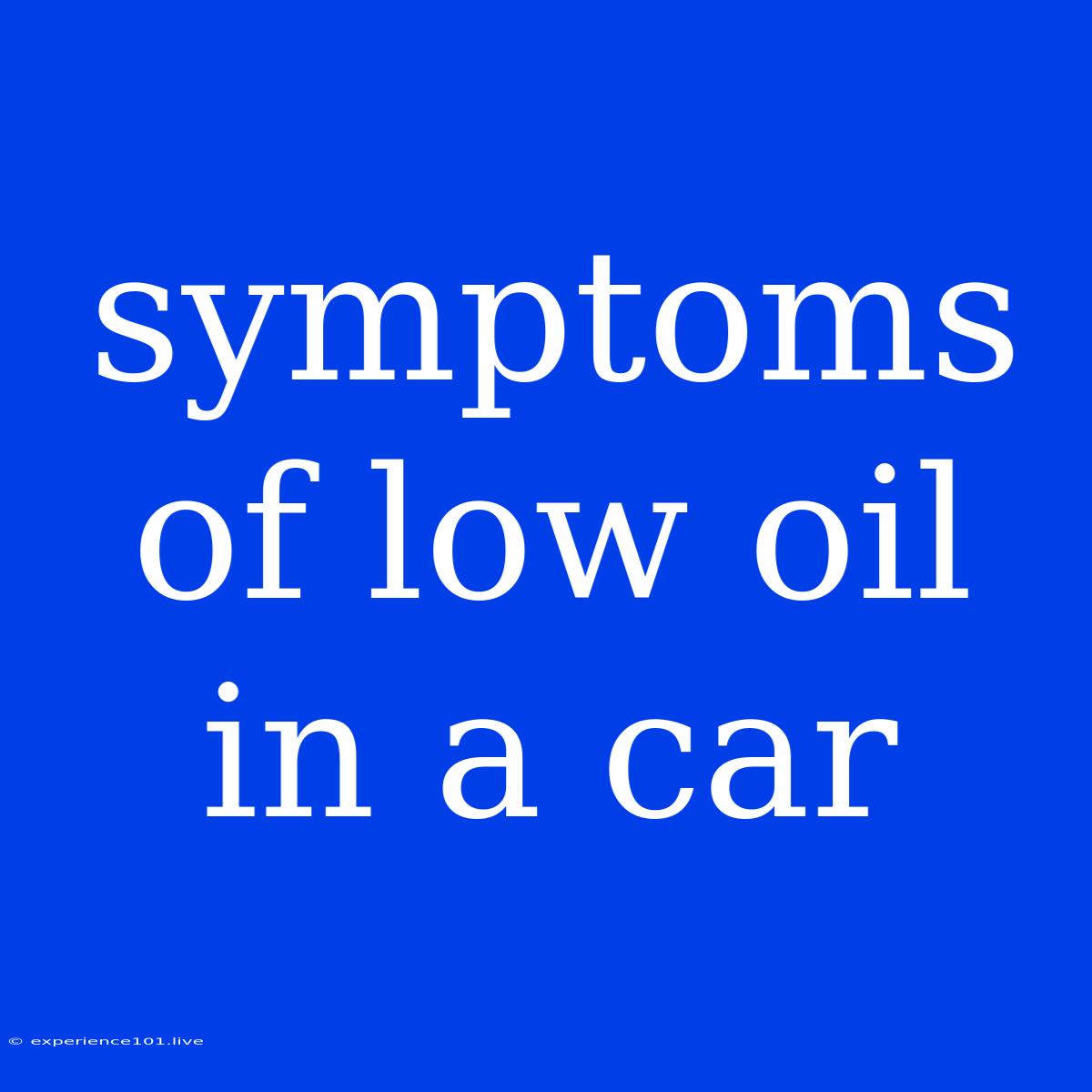Symptoms of Low Oil in Your Car: Don't Ignore the Warning Signs!
Low oil levels in your car are a serious issue that can lead to costly engine damage if left unchecked. It's important to be familiar with the warning signs so you can take action before it's too late.
Here are some common symptoms of low oil in your car:
1. The Oil Light
This is the most obvious and urgent sign. If your oil light comes on, it's crucial to stop driving immediately and check your oil level.
2. Engine Noise
A low oil level can cause your engine to run louder than usual. You may hear a knocking, ticking, or rattling sound, especially when accelerating.
3. Loss of Power
If your engine is starved for oil, it may struggle to maintain power. You might notice a decrease in acceleration or a general lack of responsiveness.
4. Smoke From the Exhaust
Excessive blue or white smoke coming from the exhaust pipe can indicate that oil is burning in the engine, often a sign of low oil levels.
5. Oil Smell
A burning oil smell can also be a symptom of low oil. It might be particularly noticeable when the engine is hot.
6. Engine Overheating
Low oil levels can lead to engine overheating. The oil lubricates the engine components, and without it, they can overheat and cause damage.
7. Unusual Engine Vibration
If your engine starts to vibrate more than usual, low oil levels could be the culprit.
What to Do If You Suspect Low Oil
1. Check the Oil Level:
- Park your car on a level surface.
- Wait for the engine to cool down.
- Open the hood and locate the dipstick.
- Wipe the dipstick clean with a rag.
- Insert the dipstick all the way back into the engine and remove it again.
- Check the oil level against the dipstick markings.
2. Add Oil:
- If the oil level is low, add oil to the engine.
- Use the correct type of oil for your vehicle.
- Refer to your owner's manual for the recommended oil type and viscosity.
3. Seek Professional Help:
- If you are unsure how to check your oil level or add oil, consult a mechanic.
- If you see any signs of engine damage, such as smoke, noise, or overheating, take your car to a mechanic immediately.
Maintaining Adequate Oil Levels is Crucial
Regular oil changes and maintaining proper oil levels are essential for keeping your engine running smoothly and preventing costly repairs.
- Check your oil level at least once a month.
- Follow your car's recommended oil change schedule.
By understanding these symptoms and taking proactive measures, you can protect your car's engine and avoid costly problems down the line.

